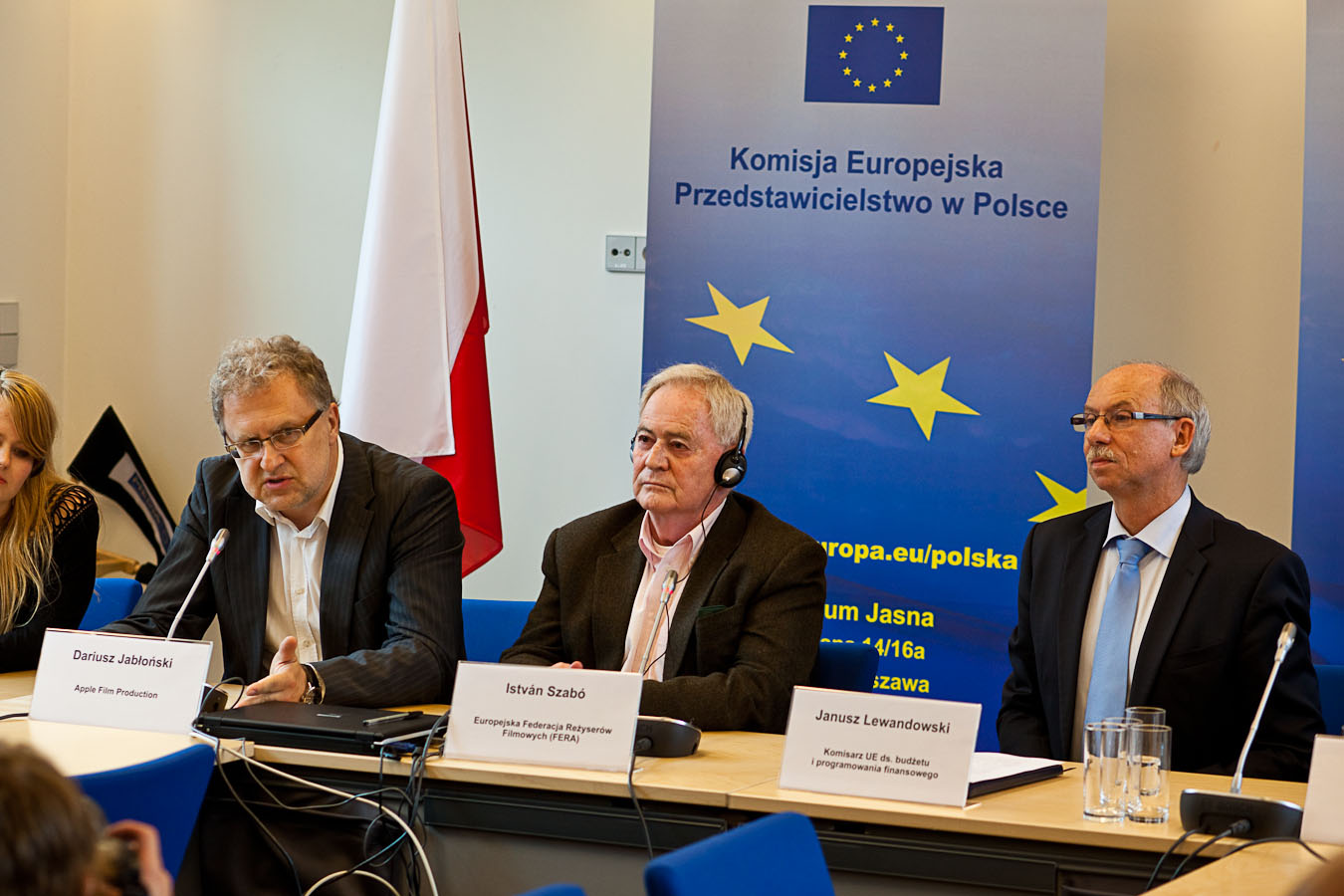 FERA Chief Executive Elisabeth O. Sjaastad and
Jakub Duszyoski from Gutek Film, representing Europa Distribution, also took
part in what was described as a very positive hour-long meeting, which was
initiated by Jabłooski, who also represents the Polish Film Directors and
Producers' Association (FRiPP).
FERA Chief Executive Elisabeth O. Sjaastad and
Jakub Duszyoski from Gutek Film, representing Europa Distribution, also took
part in what was described as a very positive hour-long meeting, which was
initiated by Jabłooski, who also represents the Polish Film Directors and
Producers' Association (FRiPP).
Commissioner Lewandowski explained that in these times of crisis management and austerity measures, many Community Programmes will face cuts, but he was happy to announce that this would not be the case for MEDIA. Over the past 20 years the MEDIA Programme has been crucial in fostering the European film industry and statistics show that 8 out of 10 Palme d'Or winners in Cannes have been supported by MEDIA.
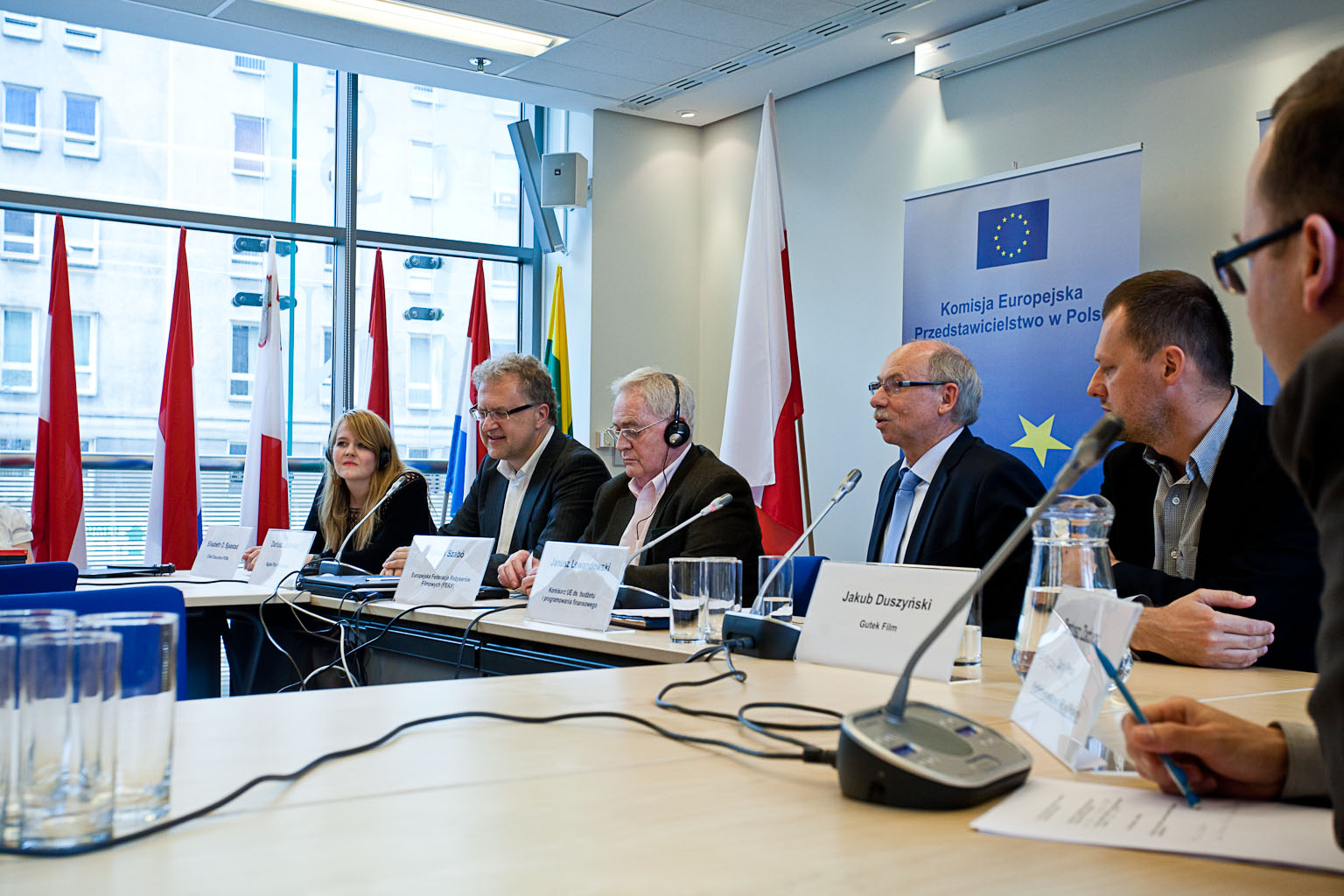 The success of the MEDIA Programme makes it
possible to not only defend its current budget level, but even find room for an
increase. The Commissioner said he is convinced this is "very effective use of taxpayers' money."
The success of the MEDIA Programme makes it
possible to not only defend its current budget level, but even find room for an
increase. The Commissioner said he is convinced this is "very effective use of taxpayers' money."
The filmmakers were encouraged by this news, but outlined the challenges that lie ahead for the industry. For Europe to be competitive in the global market, they need substantial transition support to make business models fit for online distribution, in order to reach new audiences. FERA also believes that more development funding for directors is important to achieve future success. At the same time, the cultural sector has shown a growth rate three times higher than the growth of the European economy in general, despite having only a modest share of the current EU budget.
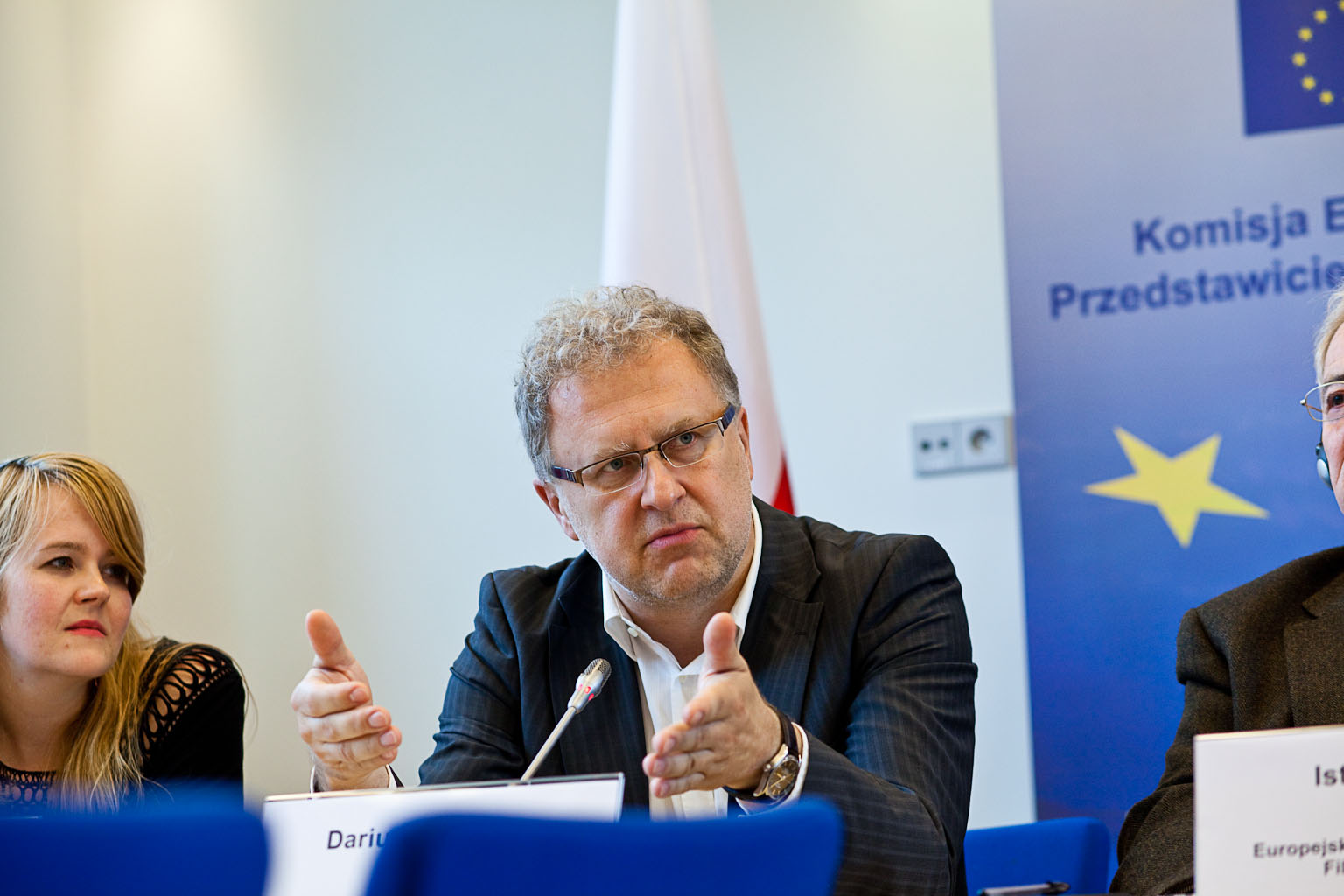 While being sensitive to the constraints of the
current financial situation, the filmmakers told Commissioner Lewandowski that
a raise from the current €755 million to € 1.2 billion for MEDIA over the next
seven year period would be the (still quite modest) amount required to meet the
industry's most acute needs.
While being sensitive to the constraints of the
current financial situation, the filmmakers told Commissioner Lewandowski that
a raise from the current €755 million to € 1.2 billion for MEDIA over the next
seven year period would be the (still quite modest) amount required to meet the
industry's most acute needs.
Szabó stressed that audiovisual expressions play a major role in building European identity, stating, "If Europe does not invest in its own motion picture culture, that expresses the hearts and minds of young Europeans, then those young Europeans will be shaped by pictures produced by others."
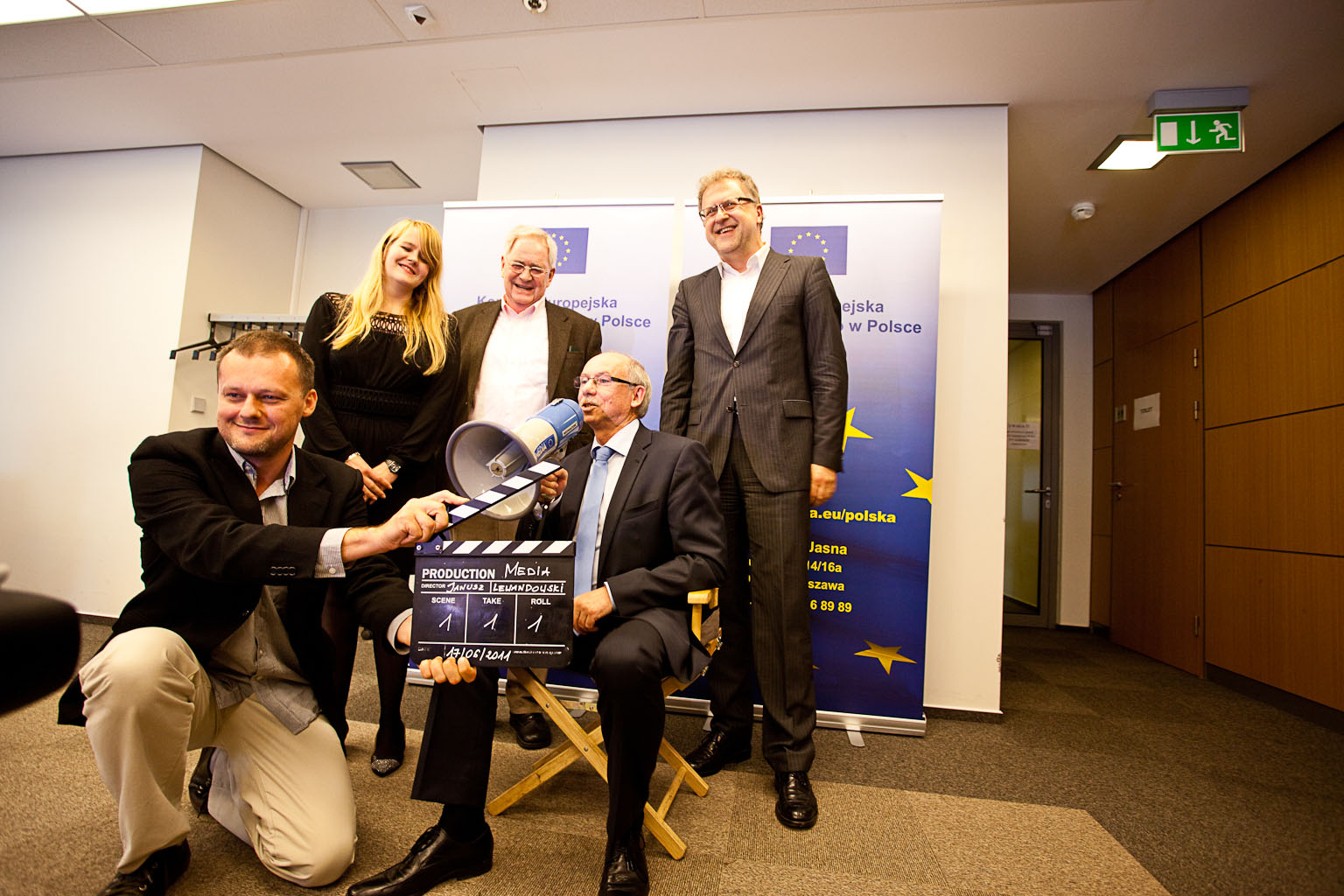 Mr. Jabłooski
added that stronger attention should be given to the circulation of European
films and especially films from Eastern Europe, and proposed that the future
MEDIA Programme should also include the Eastern Partnership countries Ukraine, Georgia,
Azerbaijan, Armenia, Belarus,
and Moldova.
Mr. Jabłooski
added that stronger attention should be given to the circulation of European
films and especially films from Eastern Europe, and proposed that the future
MEDIA Programme should also include the Eastern Partnership countries Ukraine, Georgia,
Azerbaijan, Armenia, Belarus,
and Moldova.
Half way through 2011 European film directors can already point to substantial successes, including four Oscars for Tom Hooper's film The King's Speech (including Best Film and Best Director), the best foreign language Oscar for Susanne Bier's In A Better World, and the best director award to Nicolas Vinding Refn in Cannes for Drive.
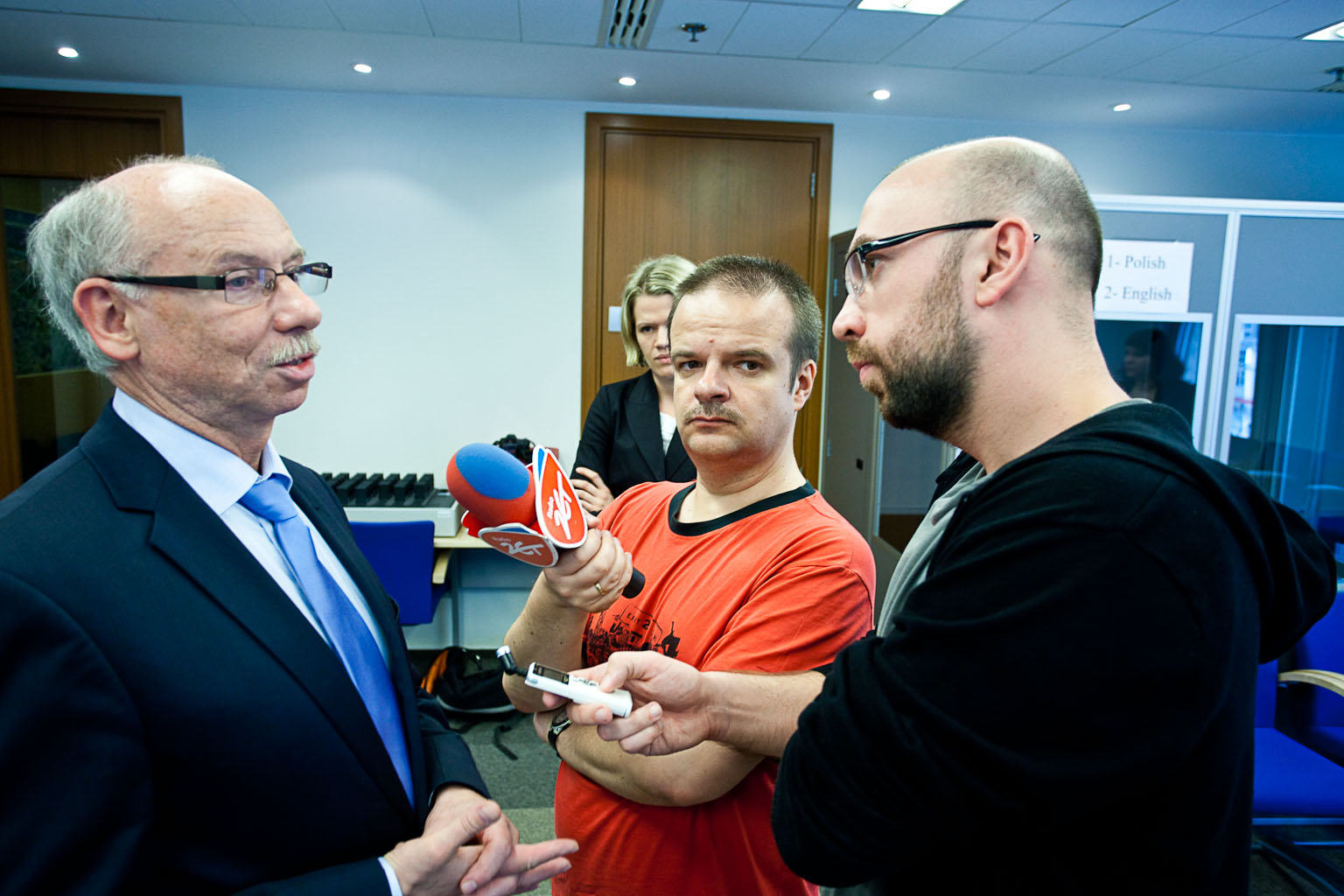 The filmmakers concluded
that in order to put creativity and innovation at the center of the EU's stated
objectives for its EU2020 Strategy, the European audiovisual industry needs the
financial resources to "unleash our
creative and innovative potential."
The filmmakers concluded
that in order to put creativity and innovation at the center of the EU's stated
objectives for its EU2020 Strategy, the European audiovisual industry needs the
financial resources to "unleash our
creative and innovative potential."

 WARSAW: EU
Commissioner for Financial Programming and Budget Janusz Lewandowski met with Istvan
Szabo, President of FERA, the Federation of European Film Directors, and
Dariusz Jabłonski, director-producer and President of the Independent Film
Foundation in Warsaw on 17 June 2011 to discuss the prospects for the 2014 -
2020 EU budget period and the need to increase funding for the MEDIA Programme.
WARSAW: EU
Commissioner for Financial Programming and Budget Janusz Lewandowski met with Istvan
Szabo, President of FERA, the Federation of European Film Directors, and
Dariusz Jabłonski, director-producer and President of the Independent Film
Foundation in Warsaw on 17 June 2011 to discuss the prospects for the 2014 -
2020 EU budget period and the need to increase funding for the MEDIA Programme.


















